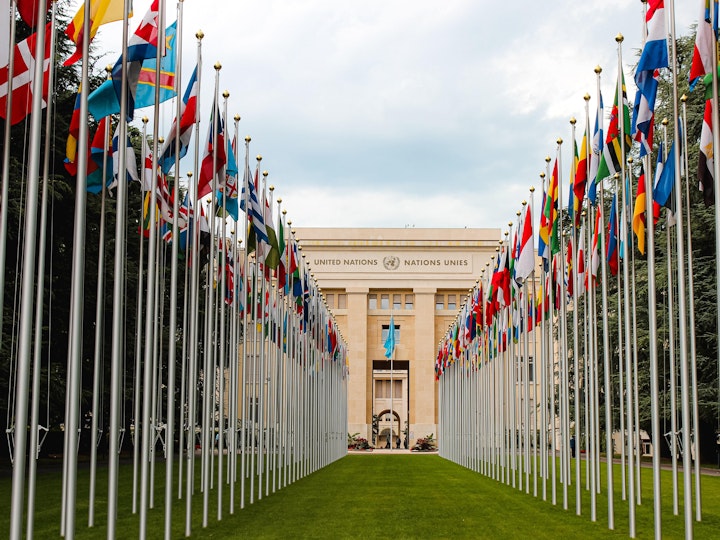Lose-lose: the game of war and economic sanctions
Dr Irina Heim uses a game-theoretic approach to explore responses to Russia’s invasion of Ukraine in our latest Leading Insights.

Russia’s long-lasting conflict and recent invasion of Ukraine have caused significant political tension between Russia and Western countries. The current political practice based on poor communication, defecting and exclusion did not adequately predict and prevent this dramatic development. If political science could not provide us with the suitable tools for the understanding of Russia’s foreign policy, can we explain the conflict from an economic or business theory perspective? And finally, what is most important in international relationships – politics or business, individual countries’ interests, or collective (i.e., global) interests?
Win-win strategy in game theory
The average rational citizen opposes war and destruction. By contrast, people see a “value” in improving their lives. In economic and business studies, Game Theory and Behavioural Economics have been powerful tools to understand and predict human behaviours under certain “game rules”, and they shed light on why conflicts like the one we are experiencing now arise in the first place. They suggest that rational people will make decisions that optimise their individual best position. In games where only one player can win, the natural tendency is to make decisions that result in the individual winning, for example in games like chess or tennis.
However, there are more complex, real-life games where one’s win does not necessarily mean another’s loss. In these games, both parties can win if they collaborate. Research into a win-win approach by Robert Axelrod shows that, for example, two countries would be better off if they eliminate trade barriers between each other but only when they do it simultaneously, if they are to cooperate.
The problem is that countries may struggle to cooperate because the incentive to act in individual countries’ interests while retaining barriers is higher. This leads to a worse collective outcome (one loses/one win or two lose) than would have been possible had both countries cooperated with each other (two wins). Axelrod suggested behaviours which tend to make a strategy successful: to avoid unnecessary conflict by cooperating as long as the other side does; to discourage the other side from walking away from collaboration; to forgive after responding to a provocation and to behave clearly so that the other player can recognise and adapt to a pattern of action.
Win-win logic in business
This win-win logic has been applied to business relationships by Kate Vitasek, particularly to strategic relationships between major suppliers and buyers. The most successful supplier agreements are not those where a buyer tries to get the quality of product at the lowest price (and vice versa), but rather where the parties act as a collaborative partnership to manage the expectations of each side.
In my experience and research at Henley Business School, while studying economic development in post-Soviet resource-rich countries on the example of Kazakhstan, I have found that companies in the oil and gas industry can co-create value by adopting win-win strategies. My research of the collaboration between international and domestic oil and gas companies in Kazakhstan found they might both benefit from the technology transfer. The recent research with MGIMO University in Russian oil and gas regions suggests that under certain conditions, international oil companies can facilitate the promotion of gas-flaring technologies and therefore reduce environmental pollution. Could this win-win logic also be applied to international relations?
Co-operation, not confrontation
In the global world, political partners have an incentive to collaborate because this is the only way to create a better outcome for everyone. If both partners abandon the other, both do worse than if they had cooperated. This is a lose-lose scenario. The Russian invasion of Ukraine is this kind of scenario, and war must be immediately stopped. However, following Axelrod’s cooperation theory, economic sanctions, a new Iron Curtain, is a counter-productive measure in achieving the long-term aims. Instead, in an inter-connected world, strategic partners such as neighbouring countries must cooperate, rather than abandon communication and collaboration. Nobody should strive for a payoff greater than the others.



